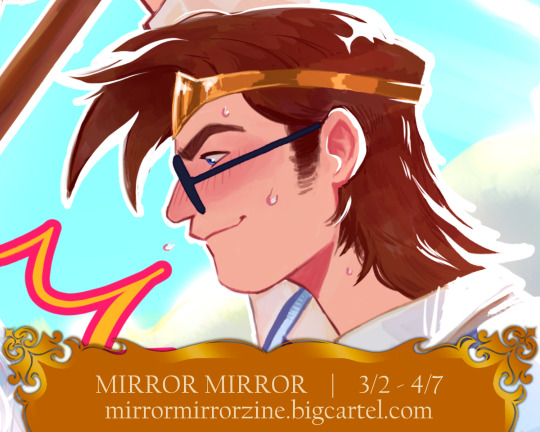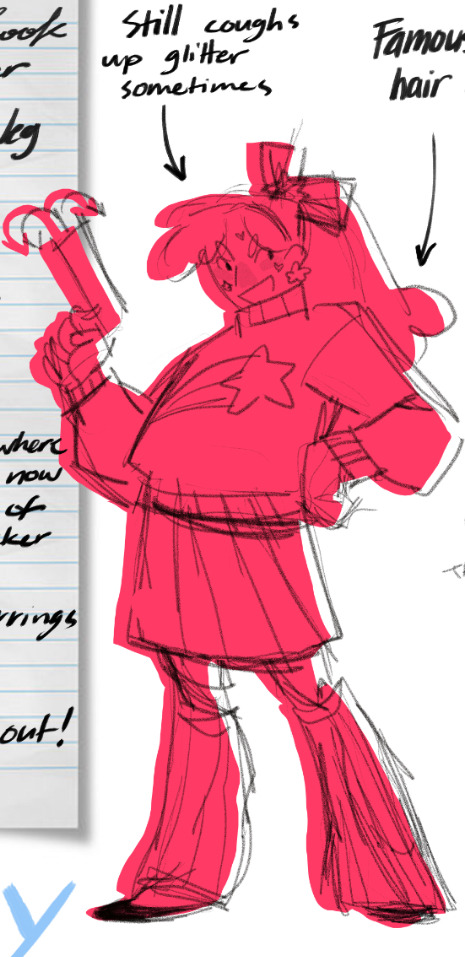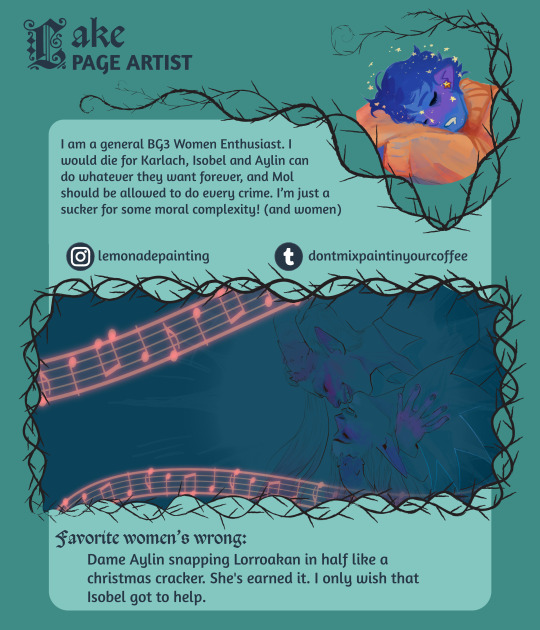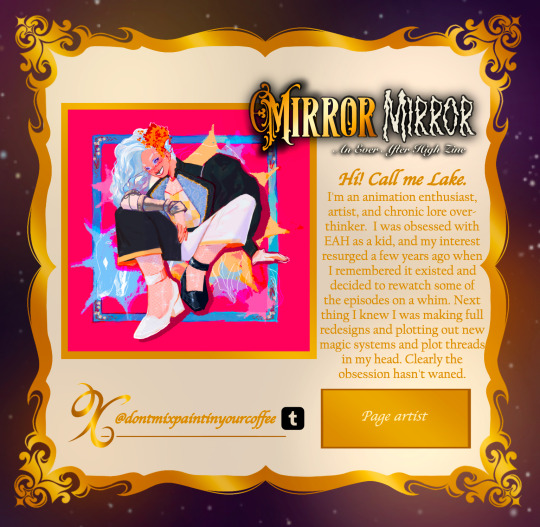#dontmixpaintinyourcoffee
Explore tagged Tumblr posts
Note
Hello! First of all I wanted to thank everyone who runs this blog, it's wonderfully helpful in a lot of ways, and it's nice to see so much information coming from direct sources all in one place. I have a lot of anxiety around accidentally harming people with my work, so finding such a wealth of references, opinions, resources, and discussion is very valuable to me. It gives me the confidence I need to move forward knowing that I won't get everything right, but I can avoid what I know to be harmful.
I do have a question, sorry for taking so long to get to it. I want to write a story featuring a physically disabled character from at least a semi-accurate historical lens (specifically 19th century England), but I don't want to rely on notoriously ableist doctor's accounts. That's potentially useful for understanding how the medical field understood various disabilities and the social attitudes surrounding them, but I want to know more about the day-to-day lives of actual disabled people before modern medicine/research, especially those who may not have had access to hospitals. My intent is this- I want to understand my character and her disability from a modern perspective, but within the time frame I know this character would not have access to the same information and so would approach her life differently than a person today with the same disabilities would. Do you know of any particular historians or research organizations that might have that kind of information? I apologize for the broad scope of the question, but I am very lost on where to actually start looking and any help would be greatly appreciated.
Thank you for taking the time to read this ask, and for all the work you do in general, have a great day!
Hi,
Thank you for your thoughtful question.
I'll start of with the fact that disability history is painfully under-researched, particularly the further back in time you go.
Part of this is modern ableism, part of it is ableism from the past, part of this is scattered understanding of conditions in the past, part of it is that a decent number of disabilities need treatment for survival, and part of this is simply a lack of sources. There's other factors, of course, but these are all pretty relevant.
If I'm honest, I generally do my historical research in very sort of piecemeal ways and I get bits and pieces from various sources that I often lose years later, which I recommend to no one lol.
I usually end up reading scientific/historical modern articles that I go to like the third page of google to find, or try my best to find a period piece that will show me a sense of how a person with a certain condition could be treated,
However, let me point you towards some organizations that might help:
This is a page from Historic England that has a general history of disability from 1050 onwards. It's categorized in general time periods, starting with 11th-14th century and ending in the modern times. I like this resource and have used it often, and it's pretty accessible and easy to read since it's made for the general public as opposed to for researchers and historians. Historic England also has further Inclusive research, if you're interested.
The US's National Parks Service (unlikely source, I know) has a project named Telling All Americans' Stories, and has a section for disability history right here. It has a general overview, a section for places, a section for people, a section for education, and one for Franklin Delano Roosevelt's experience and impact re: polio and resulting disability. Of course, this source has more things connected to the national parks, given who is doing the research, but I still find it a pretty good source to start off with. It's also quite accessible since it's aimed at the general public and not historians or researchers.
The Minnesota State Government has a "Governor's Council on Developmental Disabilities," and this council has a general history of developmental disabilities resource right here. It's divided into pre-1950 and post-1950, but it covers a lot of ground while being pretty accessible. It's a pretty cool resource, actually. I'm pretty sure I've found relevant photographs here.
The Disability History Association was established in 2004 has a podcast and is focused on specificlly funding research of disabilities. They have a page right here with a list of recent books and articles about disability history. These are all 2016 to present and all seem to be English language. It also lists two upcoming research publications that are in progress. I haven't specifically used this for my research, but I recognize some of the articles it refers to on that second page I linked. It's entirely possible I've been on this site before without remembering, though.
All Of Us is a blog by the above DHA which seems to have multiple contributors. This one I have not used.
Inclusive Historian has a resource here on a sort of general disability history, and is aimed more towards historians themselves to use to write more effectively. I also see this as a potential tool for fiction writers, as it can be useful when it comes to combining historical accuracy (to whatever degree you want it in your fiction) with modern sensitivities for modern audiences.
Disability Social History project is a self-named newer project aiming to collect historical information about disability and disabled people. It has a resources page here as well.
The Missouri History Museum has a legacy website called Action for Access with a focus on the history of the disability rights movement. This is a narrower focus and earlier than the time period you're going to write about, but it has pictures to browse. I have not found a modern equivalent of this website. Be aware that this website might not fit accessibility standards more common today because it's a legacy website.
Anyway, sorry that this seems so broad and maybe less specific than you'd like — I still hope it helps you and anyone else needing a jumping off point to research.
– mod sparrow
#dontmixpaintinyourcoffee#disability history#historical setting#historical fiction#research advice#mod sparrow
75 notes
·
View notes
Text

https://mirrormirrorzine.bigcartel.com/
What's this? A sneak peek at one of our zine pieces, drawn by the wonderful @dontmixpaintinyourcoffee! I wonder who Dex is fighting...? 👀 Find out by purchasing our zine at our shop link above!
#ever after high#eah#dexter charming#zine#fanzine#fandom zine#zine promo#preorders#preorders open#zine preview
40 notes
·
View notes
Text
Some Little Dipper AU headcanons 🩷
(design is by @dontmixpaintinyourcoffee)

1: In the Inconveniencing, Mabel ends up getting genuinely pissed off when the teenagers make fun of Dipper for being a “baby”. Like, she knows he’s a sweet baby boy but the way they say it is way too condescending. She realizes she’s had enough. She goes off on everyone (except Wendy) before grabbing Dipper’s arm and telling him they’re leaving. Dipper refuses to leave and snaps, telling her she’s always doing this to him and that he’s not her baby brother anymore. He rips his arm away from her and lays down, summoning the ghosts. He ends up saving her in the end though, but he never apologizes.
2: Pacifica is still 12 in this AU but she sees Mabel as her rival because of her beauty. Mabel just sees the kid as a sweet admirer and is always super friendly with her as if she were a celebrity and Pacifica was her #1 fan. Pacifica thinks her kindness is sarcastic and hates it. She learns to reciprocate it after NWMM, though. Mabel and Pacifica have kind of a big sister/little sister relationship.
3: Instead of Mabel being obsessed with boys, boys are obsessed with her because she’s nice and pretty. Dipper has to deal with boys coming to the shack to flirt with his sister, and Stan eventually gets them out with The Broom. Gideon is one of these boys, but he’s still 10 here so all his romance attempts are just laughable. Mabel doesn’t take him seriously and that leads him to do drastic things to earn her love.
4: Dreamscapers is about Dipper, Soos, and Stan going into Mabel’s mind. That is where Dipper learns about Mabel’s childhood. From the day he was born all the way to now. He feels pretty guilty for praising her childhood “maturity”, now knowing she never asked to raise a baby at 3 years old. Stan also shows that he genuinely cares for Dipper in this episode by giving him a pep talk after he and Dipper see a not-so fun memory. When they’re back in the real world, Dipper begins to slowly slip back into his childhood habits, learning that if he wants to be mature, he should learn how to be himself first. That means accepting all the things that make him Dipper Pines, even the embarrassing ones.
#gravity falls#gravity falls au#mabel pines#dipper pines#stan pines#gideon gleeful#pacifica northwest#wendy corduroy#<- mentioned#headcanons#little dipper au
50 notes
·
View notes
Text






So there's this new girl, right? With white hair, she's friends with Hannah Forster, and she's super weird, she loves spiders! Funny thing, she only showed up after all of those murders. Weird, right?
(Human NPMD Webby partially inspired by this post! But also partially from my own brain too! Thank you @dontmixpaintinyourcoffee for actually giving me a kick up the butt to do this cosplay with your wonderful art! This makeup is so dang pretty and fun to do)
155 notes
·
View notes
Text
The things this page does to me.

Now, I know that this page came out like a couple months ago, and I absolutely love it. Now someone else has already projected their views on this particular page, @dontmixpaintinyourcoffee (go follow them their TGS essay is so yummy), and there is a quote of theirs that stands out to me:
"It's completely out of control. Not only is it full-force Exorcist style exploding from his mouth, it looks like it's coming out of his skin. These two panels, to me, imply that the stuff is sweating out of his skin in quantities that are heavy enough to soak through his hair. His expression can be interpreted a few different ways- general agony, screaming, ect. - but when I imagine what this scene would sound like I think there's too much blockage for him to be screaming. The way he folds over, his wide eyes, the amount of goop, I'm willing to bet that his expression is him desperately trying to breathe."
I mean, come on, this is the type of horror people like me crave. That visceral, disgusting, almost repulsive type of horror that draws you in, getting you addicted to the gore. And take a look at the first panel in the next page:

He's just sitting there, catching his breath, goop still dripping, not even being able to process what had just happened. And what was that last quote again?
"The way he folds over, his wide eyes, the amount of goop, I'm willing to bet that his expression is him desperately trying to breathe."
Body horror is a fickle thing. Sometimes it's done amazingly and is fucking terrifying, like in say Alien or Stranger Things, but it's also shit in some other media pieces. However, I think the use of body horror in this page and that panel specifically, is some of the best I have seen in a while.
In summary: This page good.
15 notes
·
View notes
Text
✨Contributor Spotlight✨
Introducing @dontmixpaintinyourcoffee, a fellow Evil Women Enthusiast, joining us as a Page Artist!
Instagram: lemonadepainting
Tumblr: dontmixpaintinyourcoffee

7 notes
·
View notes
Note
Have you seen that post that goes "The ideal bestie duo in a story involving any hijinks is a small angry woman and a large man with the disposition of a skittish horse"? I immediately thought of your Erik and Christine.
If it’s the post by @dontmixpaintinyourcoffee , then yes and amen. Christine and Erik are stretching the definition of "bestie" here but we can dream.
14 notes
·
View notes
Text
Rating: Teen And Up Audiences Archive Warning: No Archive Warnings Apply Category: F/F Fandom: 逆転裁判 | Gyakuten Saiban | Ace Attorney Relationships: Ayasato Mayoi | Maya Fey/Karuma Mei | Franziska von Karma Ayasato Harumi | Pearl Fey & Karuma Mei | Franziska von Karma Ayasato Harumi | Pearl Fey & Ayasato Mayoi | Maya Fey Karuma Mei | Franziska von Karma & Mitsurugi Reiji | Miles Edgeworth background phoenix/miles Characters: Karuma Mei | Franziska von Karma Ayasato Mayoi | Maya Fey Ayasato Harumi | Pearl Fey Mitsurugi Reiji | Miles Edgeworth Other characters will be added when they become relevant Additional Tags: Case Fic THERE WILL BE ROMANCE I PROMISE You have to be playing 5D chess to write an ace attorney case fic. And luckily I am playing 5D chess
Summary:
'“I must have misheard you,” Franziska said, almost surprised by how flat and cool her voice sounded as she spoke. How easy the words escaped her mouth, forming into the voice of someone cold and clinical, without a hint of the anger she felt in her words. “Because I could have sworn you’d just asked me to act as a defense attorney.”'
When one Maya Fey is in need of legal help, once again, and neither Phoenix Wright nor Miles Edgeworth are available, there is only one person they trust enough to take on the case. And that person is Franziska von Karma, the prodigy prosecutor.
Inspired by This Post [x] by @dontmixpaintinyourcoffee
#franziska von karma#maya fey#franmaya#pearl fey#ace attorney#my writes#I'M BACK BAYBEEEE#Look mom I wrote a fic!!!!!#Now everyone had better read it
30 notes
·
View notes
Photo

Meet Lake @dontmixpaintinyourcoffee / @/lemonadepainting on insta 🔥
9 notes
·
View notes
Text
Got tagged by @machoestofmen to share 10 songs I've had on repeat,thanks mate:
- Step on Me by The Cardigans
- Chapter Doof (Extended Version) by Tom Holkenborg
- Enough by Little Fighter
- Debutante by 65 Days of Static.
- Once in a Lifetime by The Talking Heads
- Kickstart my Heart by Mötley Crüe
- The Fly by Cosmo Sheldrake
- My Iron Lung by Radiohead
- A Good Song Never Dies by Saint Motel
- Backlight by Ado
@creativitydeficient @ppikol @dontmixpaintinyourcoffee @thatonetimetraveller @underthethundergayming @quinnhills add some some music of your own you can't get out of your head rn. (If you want to ofc)
3 notes
·
View notes
Note
IGNORE MY PREVIOUS ASK AAAA @/dontmixpaintinyourcoffee opened her asks to anons hshfhhshd silly me!! Also good luck with your commissions!!- NHA
AJFLKDJFLKA I'm glad you could deliver your message lmao and thank you <33
1 note
·
View note
Text
🪶 CONTRIBUTOR SPOTLIGHT
Introducing page artist @dontmixpaintinyourcoffee!

25 notes
·
View notes
Note
@dontmixpaintinyourcoffee
I came across this question in the #historical fiction tags (I was looking for other writers to follow) and I had some thoughts on it as a disabled historical fiction writer. Caveat: I haven't done research on disability history or on 19th century England, but here's some general tips and opinions on research, disability rep, and historical fiction.
So my research process usually looks like this:
Google (if nothing good comes up, you may need to add the keyword "book" or "jstor")
If I find a useful article, read it. If I find a useful book title, try to get it at my local library (if they don't have it in the library catalog, I email the reference librarian to ask for an inter-library loan).
Skim through the book/article to see if it's going to be useful. Read either the entire book or relevant sections.
Note down names of historical figures whose experiences closely mirror my characters'. In your case, this would be looking for 19th century people mentioned who have whatever condition you want to write about (or a similar condition, if you can't find the exact same one).
Google those names - you're looking for a biography, or a memoir, or just more information on this person's life. This will give you a specific example of a real person with the condition you're trying to write about, in the time period you're trying to write about.
I wouldn't recommend you draw on other historical fiction as a source for the experiences of marginalized people in history - that seems like a really quick route to re-creating stereotypes and ableism.
Some things you might have to worry about:
Primary sources sometimes lie, and are inherently biased. Read skeptically.
The labels of conditions are likely to be different that far back, and the boundaries between two conditions might be blurred as well
Different types of disabled people are affected by ableism in wildly different ways
Lastly, you know, have fun and be yourself. You're making a good-faith effort to depict disabled people realistically, that's enough. If you can and if you're concerned, try to get a beta reader who has a similar condition to give you a vibe check.
Hello! First of all I wanted to thank everyone who runs this blog, it's wonderfully helpful in a lot of ways, and it's nice to see so much information coming from direct sources all in one place. I have a lot of anxiety around accidentally harming people with my work, so finding such a wealth of references, opinions, resources, and discussion is very valuable to me. It gives me the confidence I need to move forward knowing that I won't get everything right, but I can avoid what I know to be harmful.
I do have a question, sorry for taking so long to get to it. I want to write a story featuring a physically disabled character from at least a semi-accurate historical lens (specifically 19th century England), but I don't want to rely on notoriously ableist doctor's accounts. That's potentially useful for understanding how the medical field understood various disabilities and the social attitudes surrounding them, but I want to know more about the day-to-day lives of actual disabled people before modern medicine/research, especially those who may not have had access to hospitals. My intent is this- I want to understand my character and her disability from a modern perspective, but within the time frame I know this character would not have access to the same information and so would approach her life differently than a person today with the same disabilities would. Do you know of any particular historians or research organizations that might have that kind of information? I apologize for the broad scope of the question, but I am very lost on where to actually start looking and any help would be greatly appreciated.
Thank you for taking the time to read this ask, and for all the work you do in general, have a great day!
Hi,
Thank you for your thoughtful question.
I'll start of with the fact that disability history is painfully under-researched, particularly the further back in time you go.
Part of this is modern ableism, part of it is ableism from the past, part of this is scattered understanding of conditions in the past, part of it is that a decent number of disabilities need treatment for survival, and part of this is simply a lack of sources. There's other factors, of course, but these are all pretty relevant.
If I'm honest, I generally do my historical research in very sort of piecemeal ways and I get bits and pieces from various sources that I often lose years later, which I recommend to no one lol.
I usually end up reading scientific/historical modern articles that I go to like the third page of google to find, or try my best to find a period piece that will show me a sense of how a person with a certain condition could be treated,
However, let me point you towards some organizations that might help:
This is a page from Historic England that has a general history of disability from 1050 onwards. It's categorized in general time periods, starting with 11th-14th century and ending in the modern times. I like this resource and have used it often, and it's pretty accessible and easy to read since it's made for the general public as opposed to for researchers and historians. Historic England also has further Inclusive research, if you're interested.
The US's National Parks Service (unlikely source, I know) has a project named Telling All Americans' Stories, and has a section for disability history right here. It has a general overview, a section for places, a section for people, a section for education, and one for Franklin Delano Roosevelt's experience and impact re: polio and resulting disability. Of course, this source has more things connected to the national parks, given who is doing the research, but I still find it a pretty good source to start off with. It's also quite accessible since it's aimed at the general public and not historians or researchers.
The Minnesota State Government has a "Governor's Council on Developmental Disabilities," and this council has a general history of developmental disabilities resource right here. It's divided into pre-1950 and post-1950, but it covers a lot of ground while being pretty accessible. It's a pretty cool resource, actually. I'm pretty sure I've found relevant photographs here.
The Disability History Association was established in 2004 has a podcast and is focused on specificlly funding research of disabilities. They have a page right here with a list of recent books and articles about disability history. These are all 2016 to present and all seem to be English language. It also lists two upcoming research publications that are in progress. I haven't specifically used this for my research, but I recognize some of the articles it refers to on that second page I linked. It's entirely possible I've been on this site before without remembering, though.
All Of Us is a blog by the above DHA which seems to have multiple contributors. This one I have not used.
Inclusive Historian has a resource here on a sort of general disability history, and is aimed more towards historians themselves to use to write more effectively. I also see this as a potential tool for fiction writers, as it can be useful when it comes to combining historical accuracy (to whatever degree you want it in your fiction) with modern sensitivities for modern audiences.
Disability Social History project is a self-named newer project aiming to collect historical information about disability and disabled people. It has a resources page here as well.
The Missouri History Museum has a legacy website called Action for Access with a focus on the history of the disability rights movement. This is a narrower focus and earlier than the time period you're going to write about, but it has pictures to browse. I have not found a modern equivalent of this website. Be aware that this website might not fit accessibility standards more common today because it's a legacy website.
Anyway, sorry that this seems so broad and maybe less specific than you'd like — I still hope it helps you and anyone else needing a jumping off point to research.
– mod sparrow
75 notes
·
View notes